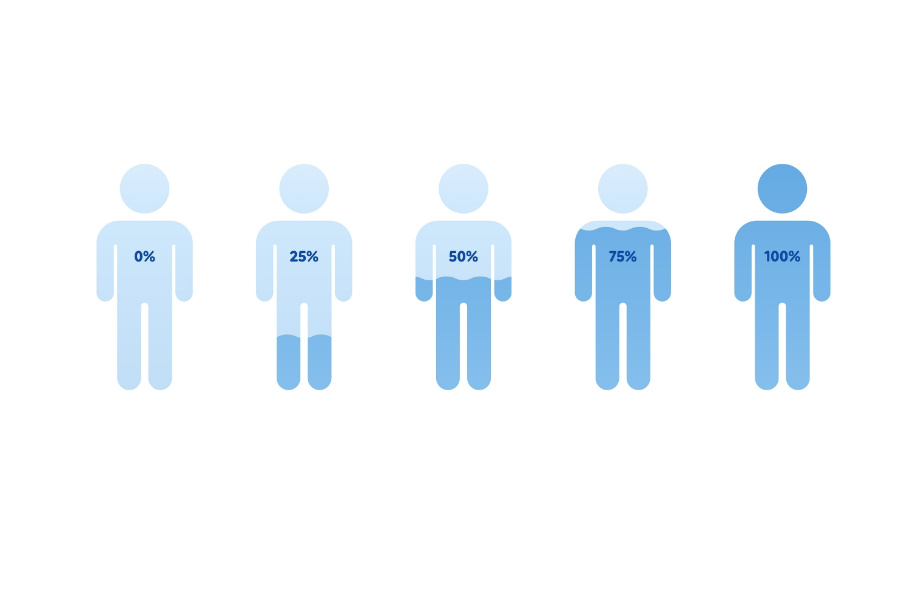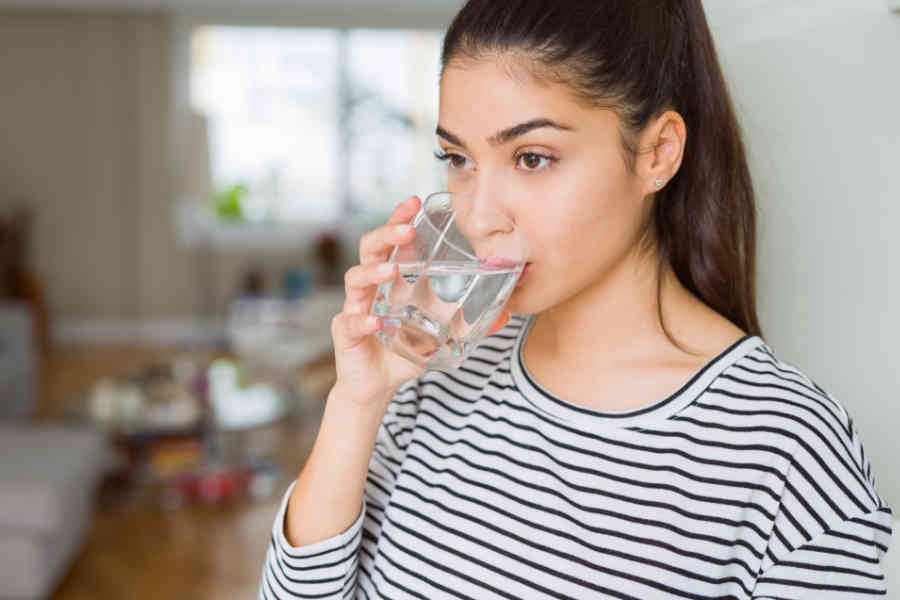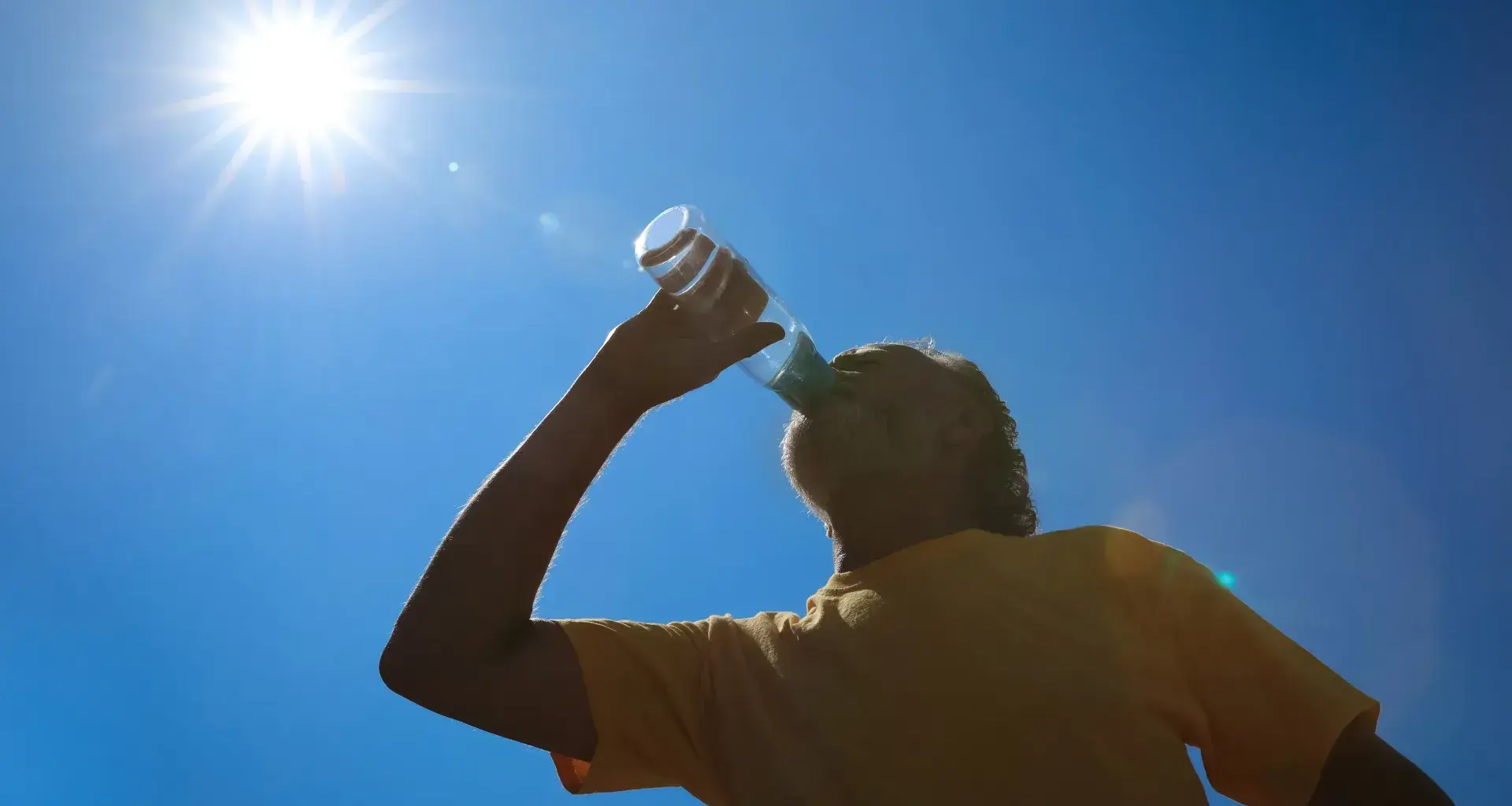Given the extremely high temperatures affecting various regions of Mexico and the world, health specialists warn the population of the dangers of heatstroke and dehydration.
Dr. Angeles Hernández, Tec professor and ER specialist at the Zambrano Hellion Hospital, says that dehydration is dangerous to our health and can even be life-threatening.
“If someone is already dehydrated, they are more vulnerable to sudden heatstroke,” she explains.
CONECTA has information for you concerning the dangers of dehydration and how to prevent the condition.

What is dehydration?
According to Dr. Hernandez, dehydration is understood to be an imbalance of body fluids/electrolytes, which can be put down to external causes (like heat) or internal causes (like medications).
“This imbalance prevents the body from performing its normal functions because the patient loses too many liquids by sweating, doing exercise, not drinking enough, or taking medicine,” the expert comments.
“The difference between the supply of and demand for liquids in the body does not allow the most important organs like the heart, brain, lungs and kidneys to work properly.”
The TecSalud expert believes that it is essential for us to be on the alert for possible signs of dehydration, especially in small children and senior citizens.
“Children’s bodies are 80% water. If they lose even a small percentage of 1 to 2%, symptoms will immediately appear. As senior citizens grow older, their body water is reduced to 50%.”
“We are recommending electrolytes and water because water on its own doesn’t replenish the electrolytes the body loses during the hot season.”

Symptoms of dehydration
The doctor classifies the dehydration symptoms we may experience as mild, moderate, and severe.
- Mild/moderate dehydration
The following are some of the most frequent symptoms of mild/moderate dehydration the doctor advises us to watch out for:
- Excessive thirst (even after drinking water)
- Dry mouth
- Dizziness
- Nausea
- Diarrhea
- Physical exhaustion
- Limited flow of dark-colored, concentrated urine
- Symptoms in small children
- Sunken eyes and cheeks
- Dry mouth
- Sunken fontanelle (soft spot)
- Dry skin (when pinched, the skin is slow to return to its original position)
- Irritability, crying
- Possible diarrhea
- No urine or limited flow
- Severe dehydration
The symptoms of severe dehydration are:
- State of confusion
- Fainting
- Syncopes (sudden, short loss of consciousness)
- Lack of thirst
- Tachycardia (heart rate of over 90 beats per minute)
“In a state of severe dehydration, the body goes into ‘shock,’ a ‘state of shock,’ or ‘hypovolemic shock,’ which means low blood volume not due to hemorrhaging.”
The specialist said that severe dehydration requires urgent hospitalization.
“Low blood supply to the brain leads to confusion; low blood supply to the kidneys leads to poor urine flow; and all this leads to organic failure.”
Dr. Hernández warns that tachycardia caused by severe dehydration and heatstroke may provoke a heart attack and have fatal consequences.

How can I prevent dehydration?
- Drink water (even though you may not be thirsty)
The professor recommends that an adult with an average weight of 70 kilos, whether thirsty or not, should drink between 1.5 and 2 liters in the course of a day.
People who weigh over 100 kilos should drink 3 liters of water a day in addition to any other drinks like coffee, juice, and soda.
- Drink electrolytes as well as water
“We are recommending electrolytes and water because water on its own doesn’t replenish the electrolytes the body loses during the hot season.”
The specialist told us that half a liter of a drink containing electrolytes during the day is enough.
- Avoid exposure to the sun
Dr. Hernández commented that we should avoid direct sunlight and doing outdoor or physical activities between 10 in the morning and 5 in the afternoon as this will help prevent dehydration and heatstroke.
Try to wear loose-fitting cotton or light clothes during the hot season and wear a hat or carry an umbrella if you are exposed to direct sunlight.
- Check urine as a hydration indicator
Darker urine or a limited flow are warning symptoms as this usually indicates a lack of water in the body.
- Don’t finish off all the water in one go
Drink 250 milliliters of water every two to three hours, gradually and not all at once; otherwise, your stomach will distend, and you may even become nauseous and get a little reflux.
- Avoid sodas and alcoholic beverages
Because of the glucose or alcohol they contain, these drinks may cause you to lose more water when you urinate, which is counterproductive.
“Alcohol is metabolized in the liver and converted into glucose (...) If you drink beer, drink water too (in the same proportion). Later, it may seem like you have a hangover but, in reality, you may be dehydrated.”
Dr. Hernández also said that milk is counterproductive due to its containing lactose, which does not help hydration.
“Alcohol is metabolized in the liver and converted into glucose (...) If you drink beer, drink water too (in the same proportion).”
- Eat more fruit and vegetables
Take advantage of fruit and vegetables to nourish and hydrate yourself. Try to avoid eating meat because it needs water to be digested.
What should I do if I suspect I am dehydrated?
- Drink some electrolytes or water as soon as possible.
Wait for an hour to see if you feel any better. You know you’re getting better when you’re not thirsty anymore, when your urine flow increases, and when other symptoms disappear.
- If you don’t get any better, go and see the doctor at once.
If you feel dizzy or nauseous and can’t keep liquids down, see the doctor immediately for a checkup and, if necessary, for intravenous fluids to be administered.
YOU MAY ALSO BE INTERESTED IN:





